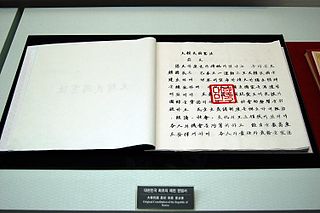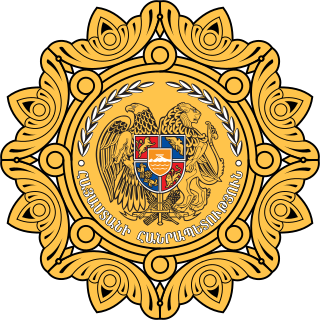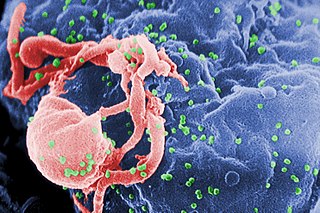Civil liberties or personal freedoms are personal guarantees and freedoms that the government cannot abridge, either by law or by judicial interpretation, without due process. Though the scope of the term differs between countries, civil liberties may include the freedom of conscience, freedom of press, freedom of religion, freedom of expression, freedom of assembly, the right to security and liberty, freedom of speech, the right to privacy, the right to equal treatment under the law and due process, the right to a fair trial, and the right to life. Other civil liberties include the right to own property, the right to defend oneself, and the right to bodily integrity. Within the distinctions between civil liberties and other types of liberty, distinctions exist between positive liberty/positive rights and negative liberty/negative rights.

The Canadian Bill of Rights is a federal statute and bill of rights enacted by the Parliament of Canada on August 10, 1960. It provides Canadians with certain rights at Canadian federal law in relation to other federal statutes. It was the earliest expression of human rights law at the federal level in Canada, though an implied Bill of Rights had already been recognized in the Canadian Common Law.
The African Commission on Human and Peoples' Rights (ACHPR) is a quasi-judicial body tasked with promoting and protecting human rights and collective (peoples') rights throughout the African continent as well as interpreting the African Charter on Human and Peoples' Rights and considering individual complaints of violations of the Charter. This includes investigating human rights violations, creating and approving programs of action towards encouraging human rights, and set up effect communication between them and states to get first hand information on violations of human rights. Although the ACHPR is under a regional government facility, they don't have any actual power and enforcement over laws. This ends up in them drafting up proposals to send up the chain of command to the Assembly of Heads of State and Government and they will act accordingly.

The Fundamental Rights, Directive Principles of State Policy and Fundamental Duties are sections of the Constitution of India that prescribe the fundamental obligations of the states to its citizens and the duties and the rights of the citizens to the State. These sections comprise a constitutional bill of rights for government policy-making and the behaviour and conduct of citizens. These sections are considered vital elements of the constitution, which was developed between 1947 and 1949 by the Constituent Assembly of India.

The Constitution of the Republic of Korea is the basic law of South Korea. It was promulgated on July 17, 1948, and was last revised on October 29, 1987.
Following Bahrain's independence from the British in 1971, the government of Bahrain embarked on an extended period of political suppression under a 1974 State Security Law shortly after the adoption of the country's first formal Constitution in 1973. Overwhelming objections to state authority resulted in the forced dissolution of the National Assembly by Amir Isa bin Salman Al Khalifa and the suspension of the Constitution until 2001. The State Security Law of 1974 was a law used by the government of Bahrain to crush political unrest from 1974 until 2001. It was during this period that the worst human rights violations and torture were said to have taken place. The State Security Law contained measures permitting the government to arrest and imprison individuals without trial for a period of up to three years for crimes relating to state security. A subsequent Decree to the 1974 Act invoked the establishment of State Security Courts, adding to the conditions conducive to the practice of arbitrary arrest and torture. The deteriorating human rights situation in Bahrain is reported to have reached its height in the mid-1990s when thousands of men, women and children were illegally detained, reports of torture and ill-treatment of detainees were documented, and trials fell short of international standards.

The National Assembly of the Republic of Armenia, also informally referred to as the Parliament of Armenia is the legislative branch of the government of Armenia.
Censorship in Iraq has changed under different regimes, most recently due to the 2003 invasion of Iraq.
Fundamental rights, the basic and civil liberties of the people, are protected under the charter of rights contained in Part III of the Constitution of India. These include individual rights common to most liberal democracies, such as equality before law, freedom of speech and expression, religious and cultural freedom and peaceful assembly, freedom to practice religion, and the right to constitutional remedies for the protection of civil rights by means of writs such as Habeas Corpus, Mandamus, Prohibition, Certiorari and Quo Warranto.

The Constitution of Kosovo, refers to the supreme law of the Republic of Kosovo. Article four of the constitution establishes the rules and separate powers of the three branches of the government. The unicameral national Assembly of the Republic exercises the legislative power, the executive branch led by the President and the Prime Minister which are responsible for implementing laws and the judicial system headed by the Supreme court.

An ombudsman, ombudsperson, ombud, or public advocate is an official who is charged with representing the interests of the public by investigating and addressing complaints of maladministration or a violation of rights. The ombudsman is usually appointed by the government or by parliament, but with a significant degree of independence. In some countries an inspector general, citizen advocate or other official may have duties similar to those of a national ombudsman, and may also be appointed by a legislature. Below the national level an ombudsman may be appointed by a state, local or municipal government. Unofficial ombudsmen may be appointed by, or even work for, a corporation such as a utility supplier, newspaper, NGO, or professional regulatory body.
Part Two of the Constitution of Albania is the second of eighteen parts. Titled The Fundamental Human Rights and Freedoms, it is divided into 6 chapters that consist of 49 articles.

The Constitution of the Republic of Turkey, also known as the Constitution of 1982, is Turkey's fundamental law. It establishes the organization of the government and sets out the principles and rules of the state's conduct along with its responsibilities in regards to its citizens. The constitution also establishes the rights and responsibilities of the latter while setting the guidelines for the delegation and exercise of sovereignty that belongs to the Turkish people.
Karen Andreasyan is a former human rights defender ombudsman of Armenia (2011–2016), the associate professor of law at Yerevan State University and member of Armenian Chamber of Advocates.
The right to sexuality incorporates the right to express one's sexuality and to be free from discrimination on the grounds of sexual orientation. In specific, it relates to the human rights of people of diverse sexual orientations, including lesbian, gay, bisexual and transgender (LGBT) people, and the protection of those rights, although it is equally applicable to heterosexuality. The right to sexuality and freedom from discrimination on the grounds of sexual orientation is based on the universality of human rights and the inalienable nature of rights belonging to every person by virtue of being human.

The Constitutional Court of Armenia is the highest legal body for constitutional review in Armenia. It is a judicial body which is separate and independent from the executive, the legislative and the judiciary. It is responsible for supervising the constitutionality of laws and other legislative instruments. The law of constitutional court of Armenia is defined both in Armenian constitution and in law.

The President of Armenia is the head of state and the guarantor of independence and territorial integrity of Armenia elected to a single seven year term by the National Assembly of Armenia. Under Armenia's parliamentary system, the President is simply a figurehead and holds ceremonial duties, with most of the political power vested in the Parliament and Prime Minister.
Armenian law, that being the modern Legal system of Armenia, is a system of law acted in ic of Armenia]].

The Central Electoral Commission of the Republic of Armenia organizes elections and referendums of Armenia. It controls the whole electoral process, counts and publicizes results. Before the formation of the Republic of Armenia in 1991, the Central Electoral Committee (CEC) activities were carried out in accordance with the Soviet Socialist Armenian law on the Election of People's Deputies. According to the law adopted in August 2011 concerning organizing and conducting presidential elections of the Republic of Armenia, there should be three levels of electoral committees:
- The Central Electoral Committee of the Republic of Armenia of the President of Armenia
- Urban and Regional Electoral Commissions of the President Elections of the Republic of Armenia
- Precinct Electoral Commissions of the President Elections of the Republic of Armenia

Access to public information and freedom of information (FOI) refer to the right of access to information held by public bodies also known as "right to know". Access to public information is considered of fundamental importance for the effective functioning of democratic systems, as it enhances governments' and public officials' accountability, boosting people participation and allowing their informed participation into public life. The fundamental premise of the right of access to public information is that the information held by governmental institutions is in principle public and may be concealed only on the basis of legitimate reasons which should be detailed in the law.











